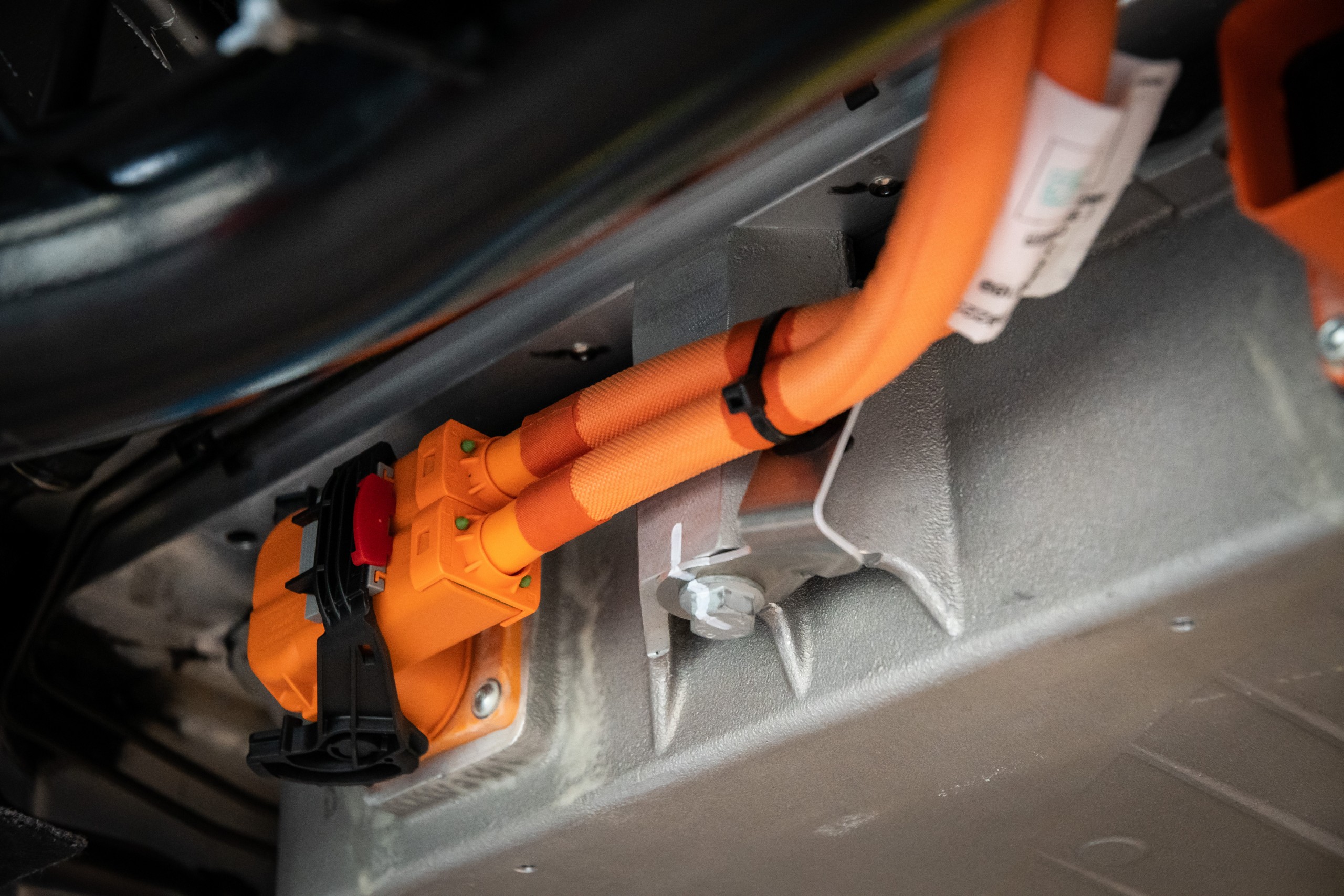E-mobility
Electrification

Since the early 2000s, the Allianz Center for Technology has been analyzing the repairability and insurance aspects of electric and hybrid vehicles, collectively referred to as high-voltage vehicles.
Specific research fields of the AZT are
- Deformation behavior
- Protection of expensive components (e. g. high voltage battery, power electronics, cables) in the event of accidents
- Crash management ⇔ Lightweight construction
- Influence of new construction methods, e. g. CFRP, large cast part
- Repairability
- Safety regulations (qualification, equipment)
- Body shop processes and guidelines
- Possible additional costs in bodyshops and their reduction
- Battery repair, particularly with regard to the sustainability of e-mobility
- Statistical observation of the claims process
- Special damage characteristics and cost drivers
- Fire risk and other characteristics that are publicly perceived as critical
- Special topics, e. g. marten damage, damage caused by animals
- Work and communication in associations and committees
- International working groups (RCAR) to address recognized specific challenges and design standards
- Participation in the GDV (German Insurance Association), VDA (German Association of the Automotive Industry), VDIK (Association of International Motor Vehicle Manufacturers e.V.) committees for guidelines (e. g. quarantine areas) and regulations
- Direct advice to manufacturers in the event of identified need for improvement, e. g. damage to the underside of the battery

In addition to crash tests and repair tests with high-voltage vehicles, tests have also been carried out on the effect of temperature on the high-voltage battery in the context of painting, for example, and extensive statistical surveys on the occurrence of damage. As new vehicle manufacturers are establishing themselves in the field of electromobility, who lack essential empirical values, especially for insurance classification, the AZT also offers consulting cooperation.
Current publications on this topic can be found in the download area in the "E-mobility" section.
External video
This video is loaded in a YouTube player. This means that Google collects information about your use of the information provided and uses it for analysis and marketing purposes. However, if you would still like to view this video, you must change the cookie settings.
Open cookie settings